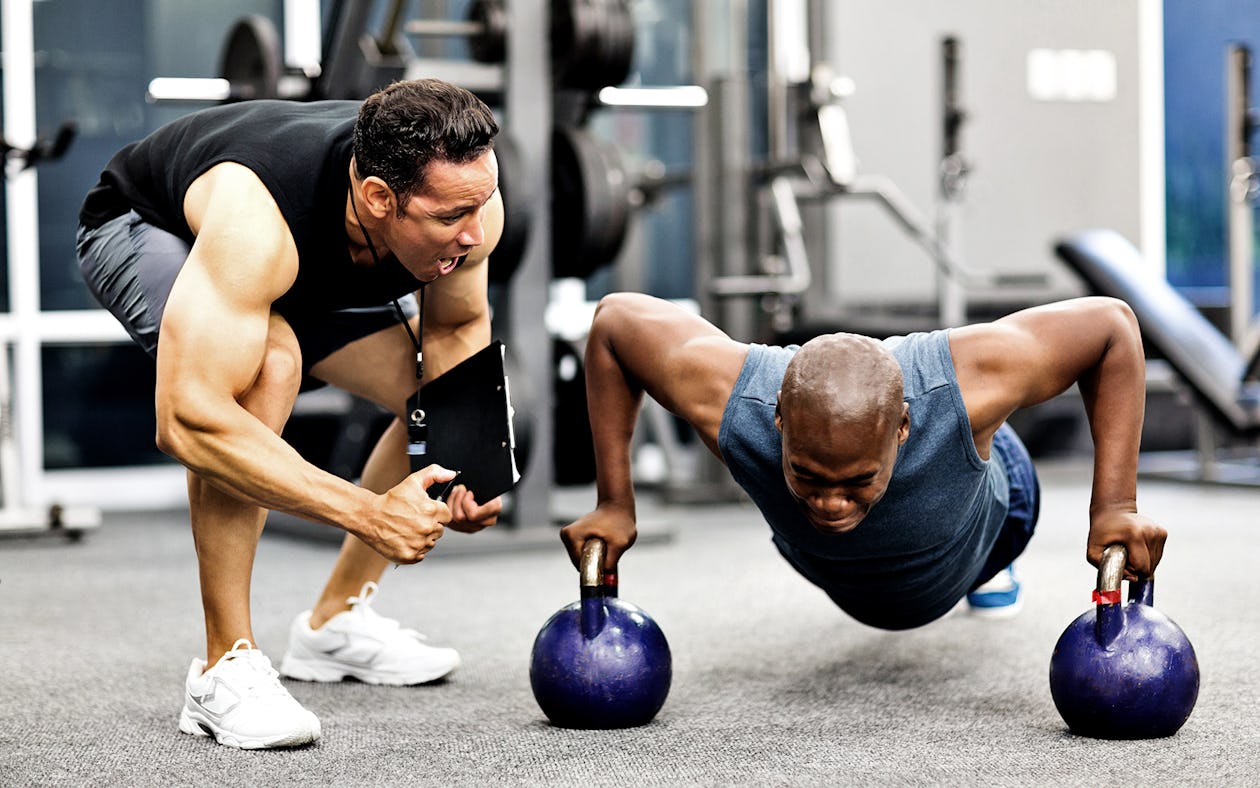Personal trainers are an asset to any fitness program, but they should be employed cautiously and paid attention to. The personal trainer should not be someone that the person only interacts with once in a while.
There should be some sort of regular contact between them and preferably face-to-face contact since there is no replacement for actually being able to communicate directly with one another.

Personal trainers south east Melbourne might be of help. They are exceptionally good professionals.
Here are just a few things that you need to ask yourself before deciding whether or not having a personal trainer is right for you:
1) Where will I find my trainer?
If your plan includes working out at home then it’s best to hire someone who lives relatively close by – certainly within reasonable driving distance – so if your schedule changes all of a sudden, your trainer won’t have to keep driving for an hour or so just to meet you.
For members, ask the staff at your gym who they recommend and why – that’s usually a good place to start. When you do arrange a meeting with them, make sure you’re both comfortable working together – if your personalities don’t click then it might not be the best fit.
Also, never hire trainers who are employed at or associated with any type of diet centre or weight loss program.
These companies indeed offer their own “special” nutrition plans, but the fact is that they are putting money ahead of your fitness goals due to how much extra profit they make from selling additional services/products relating to those plans – no matter what this means for your wallet and/or waistline.
2) How do they charge?
Many trainers will offer you the service of training you for a flat rate – this is usually best if you can afford it, however, it’s also not bad to ask them what their hourly rate is before deciding.
There are other interesting payment options such as paying either a set amount per session or having an arrangement where you pay for a certain number of sessions and then once that’s completed, move on to another plan (you often see this with weight-loss centres and centres that offer boot camps).
One thing I’ve noticed is that most trainers who work within gyms charge by the hour but if yours charges per session, be to ask about how long each session will be – some gyms have trainers come in for 30-45 minute periods whereas others might give you a whole hour.
If your time is limited, make sure that it’s not going to cause a problem.
3) How much experience do they have?
Just because someone has a bunch of letters after their name doesn’t mean that they’re qualified to train you. When conducting an interview/research process for yourself, don’t just stop at those letters and certifications either.
You need to find out as much as possible about them such as where they trained and how long, what types of clients they’ve worked with, whether or not they work within the fitness industry (they could very simply be unemployed), etc…
An easy way to tell if someone is a legitimate trainer or not is by asking them what their current clients are doing.
If they don’t have any then you should be quite sceptical as it’s impossible to provide training for people who aren’t paying you – unless it’s through another type of gym membership arrangement (such as at your workplace).
4) Do they have a nutrition plan?
No matter how great a trainer maybe, I wouldn’t trust them to design my entire diet just because they’re a personal trainer.
This isn’t an insult, by the way, I just know that nutrition can be extremely complicated and require many more years of education/training than most fitness degree programs offer.
Any good trainer will have been well-versed in nutrition by the time they start training others but it’s still a good idea to ask them what experience they have with designing nutrition plans.
5) Do I feel comfortable with them?
This is one of those questions where you just have to follow your gut instinct. If you don’t get a good feeling from someone then run away as quickly as possible – nothing good can come from working with them.
Another red flag is if they’re trying to push you into working out at home, something odd about their prices (too high/low), or not wanting to help set up a workout routine for you.
The best trainers will be very communicative and happy to answer all of your questions as well as take the time to get to know you and what you’re looking for.
6) Do they have references?
This is just something that will let you see how well-liked they are among the people who’ve worked with them. There isn’t anything wrong with asking potential trainers whether or not there’s anyone else out there who can vouch for them.
If their references are glowing then it means that others believe in them – this goes double if those references are people who work within your fitness industry (such as gym personal trainers).
Just make sure to ask about any possible bias before taking someone’s word for it.
7) What services do you offer?
You’ll likely want to get a few different sessions/consultations done before deciding on a trainer so make sure that there isn’t anything odd about the services they offer.
For example, if someone is offering personal training but no nutritional advice or vice versa then you may want to find someone else.
Another thing to consider is how many sessions/consultations are included in their pricing schemes – it’s not a good sign when people are offering only 1-2 sessions for your money.
8) How flexible are their hours?
Just because someone has stated hours doesn’t mean that they’ll be available during them! It may be worth asking ahead of time what days/times work best with the person you’re thinking about working with.
You’ll likely have your schedule as well but if yours doesn’t need to match theirs then you’ll want to make sure you get a chance to work things out before committing your time and money.
9) Where do I sign up?
Once everything’s been said and done and you’ve decided that a personal trainer is right for you, congratulations! You may be wondering where to go from here but the answer will depend on what type of training they’re offering – it could either be through an independent gym or directly from them.
